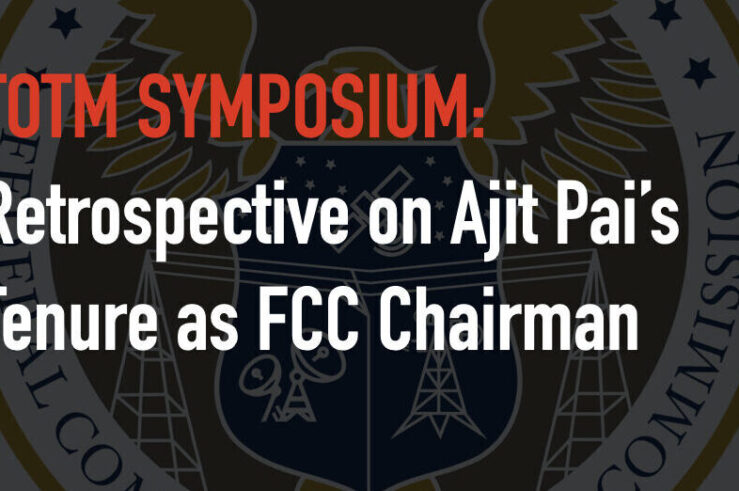Showing results for: “premium natural and organic”
What is a search engine?
What is a search engine? This might seem like an innocuous question, but it lies at the heart of the US Department of Justice and state Attorneys’ General antitrust complaint against Google, as well as the European Commission’s Google Search and Android decisions. It is also central to a report published by the UK’s Competition ... What is a search engine?
How to Regulate: Externalities
Following is the second in a series of posts on my forthcoming book, How to Regulate: A Guide for Policy Makers (Cambridge Univ. Press 2017). The initial post is here. As I mentioned in my first post, How to Regulate examines the market failures (and other private ordering defects) that have traditionally been invoked as ... How to Regulate: Externalities
Meese and Oman Spank the Corporate Law Prof Amici in Hobby Lobby
The Religious Freedom Restoration Act (RFRA) subjects government-imposed burdens on religious exercise to strict scrutiny. In particular, the Act provides that “[g]overnment shall not substantially burden a person’s exercise of religion even if the burden results from a rule of general applicability” unless the government can establish that doing so is the least restrictive means of furthering ... Meese and Oman Spank the Corporate Law Prof Amici in Hobby Lobby
Hazlett on the Apple e-books case: The Apple case is a throwback to Dr. Miles, and that’s not a good thing
The Apple e-books case is throwback to Dr. Miles, the 1911 Supreme Court decision that managed to misinterpret the economics of competition and so thwart productive activity for over a century. The active debate here at TOTM reveals why. The District Court and Second Circuit have employed a per se rule to find that the ... Hazlett on the Apple e-books case: The Apple case is a throwback to Dr. Miles, and that’s not a good thing
Calling into Question the FTC’s Theory of the Case in FTC v. Qualcomm
This post does not attempt to answer the question of what the court should decide in FTC v. Qualcomm because we do not have access to the information that would allow us to make such a determination. Rather, we focus on economic issues confronting the court by drawing heavily from our writings in this area: ... Calling into Question the FTC’s Theory of the Case in FTC v. Qualcomm
Why the Canadian Supreme Court’s Equustek decision is a good thing for freedom — even on the Internet
I recently published a piece in the Hill welcoming the Canadian Supreme Court’s decision in Google v. Equustek. In this post I expand (at length) upon my assessment of the case. In its decision, the Court upheld injunctive relief against Google, directing the company to avoid indexing websites offering the infringing goods in question, regardless ... Why the Canadian Supreme Court’s Equustek decision is a good thing for freedom — even on the Internet
Oncology Drives Most Recent Accelerated Approvals
In my most recent post on medicine approvals I explored how the HIV/AIDS crisis drove a reevaluation of what was truly essential to demonstrate a new drug’s efficacy. Allowing HIV patients to take investigational treatments meant that research into rarer conditions—which previously would never have been profitable—might now be financially worthwhile. This post estimates the ... Oncology Drives Most Recent Accelerated Approvals
Airgas and shareholder value
Bebchuk, Cohen and Wang have posted Staggered Boards and the Wealth of Shareholders: Evidence from a Natural Experiment. Here’s the abstract: While staggered boards are known to be negatively correlated with firm valuation, such association might be due to staggered boards either bringing about lower firm value or merely being the product of the tendency ... Airgas and shareholder value
Great Job, Kid! (And Welcome to the Private Sector)
Many thanks to Geoffrey Manne for this opportunity to memorialize a few thoughts I have about Ajit’s service on the Federal Communications Commission. My remarks will be more about Ajit as a person rather than the substance and long laundry list of his accomplishments as chair. Others will do that, I’m sure. The first memory ... Great Job, Kid! (And Welcome to the Private Sector)
Do Slotting Contracts Harm Consumers?
Warning: shameless plug of my own research to follow! Slotting allowances, or payments for shelf space, have been a central part of my research agenda for the last several years. My work with Ben Klein, The Economics of Slotting Contracts, presents a procompetitive theoretical explanation (and some aggregate data in support of our theory) for ... Do Slotting Contracts Harm Consumers?
An Interesting Paper on Unwanted Fertility and Crime
Juan Pantano, a Ph.D. Candidate in the excellent UCLA Economics Department, has a paper that some of our readers might be interested in entitled: Unwanted Fertility, Contraceptive Technology and Crime: Exploiting a Natural Experiment in Access to the Pill. Here’s the abstract: A blossoming literature in the U.S. examines the role of abortion legalization on ... An Interesting Paper on Unwanted Fertility and Crime
What Does NetChoice v. Bonta Mean for KOSA and Other Attempts to Protect Children Online?
With yet another win for NetChoice in the U.S. District Court for the Northern District of California—this time a preliminary injunction granted against California’s Age Appropriate Design Code (AADC)—it is worth asking what this means for the federally proposed Kids Online Safety Act (KOSA) and other laws of similar import that have been considered in ... What Does NetChoice v. Bonta Mean for KOSA and Other Attempts to Protect Children Online?









